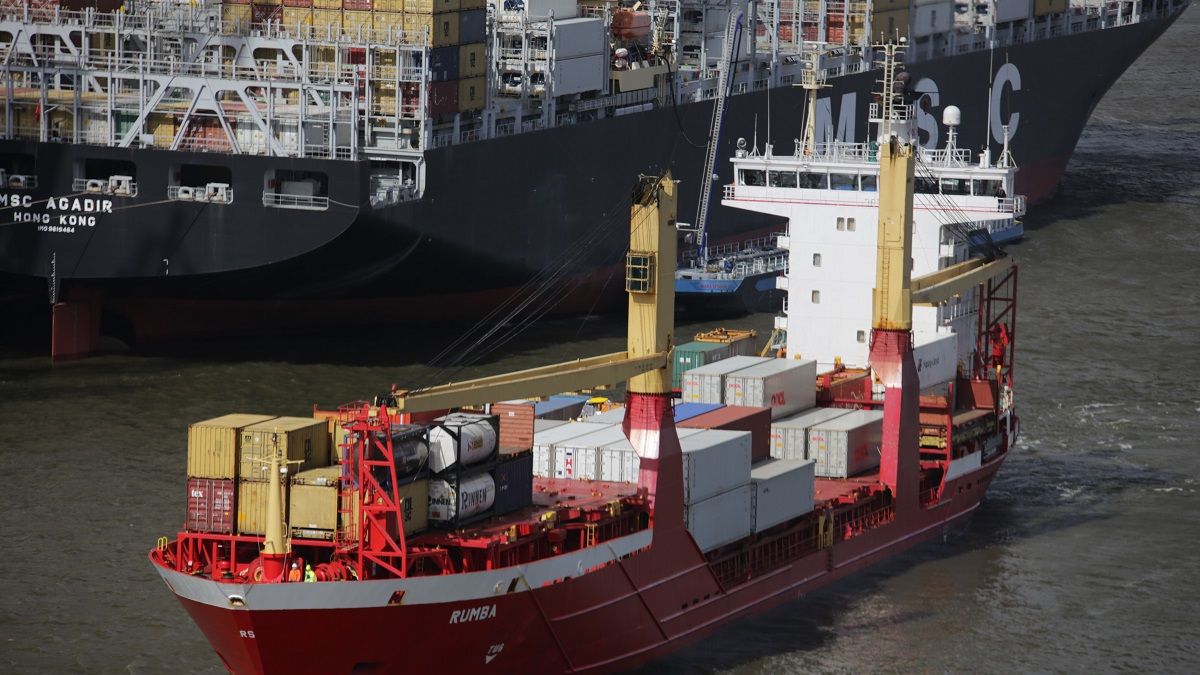Germany’s government has come to an agreement on a deal involving Hamburg’s port that will allow a Chinese state company to buy a stake in one of its terminals.
The port, one of the world’s largest, had come under pressure from at least six government departments but the deal was eventually pushed through by chancellor Olaf Scholz’s ministry. Hurriyet Daily News reported that the European Commission had also resisted the move.
Under its new strictures, the Chinese firm Cosco will now have only a minority share in the venture.
As Politico reported: “The issue is politically sensitive, with politicians from the Green party and liberal FDP having expressed concerns about undue Chinese influence over critical infrastructure — particularly after Russia’s invasion of Ukraine laid bare Europe’s energy dependency on autocratic third countries.”
It added: “Now, the government ministries have reached a deal: If approved, it would allow Chinese company Cosco to buy only 24.9% instead of 35% of the shipping company that runs the terminal, Hamburger Hafen und Logistik (HHLA) […] As a minority shareholder, this would prevent Cosco from having a formal say over strategy.”
However, there are still many warning that the transaction remains problematic.
As Rolf Langhammer from the Kiel Institute for the World Economy explains in the ARD magazine Panorama: “The long-term strategy of the Chinese could, of course, be to seize control of the entire supply chain, both digital and maritime, in Europe. This could give China a competitive advantage or initiate an ‘abuse of economic power’.”
And as Politico reported earlier this month: “A stake in Hamburg, Europe’s third largest port, is just another piece in that puzzle for Beijing, and many don’t like it. The logic of encouraging Chinese investment is that those ports would then be favored by Chinese shippers that take their business there. That sparks a race among northern European ports to come to arrangements with the Chinese.”
Much of the tumult in Germany seems to place this Chinese investment in the context of the country’s Belt and Road Initiative (BRI). That scheme, on a macro view, is a plan to develop two new trade routes connecting China with the rest of the world. The subject was covered briefly in a segment on the HBO show Last Week Tonight.
“But the initiative,” wrote Dr Yu Jie and Jon Wallace of Chatham House last year, “is about far more than infrastructure. It is an effort to develop an expanded, interdependent market for China, grow China’s economic and political power, and create the right conditions for China to build a high technology economy.”
Elsewhere, the authors wrote: “’Debt trap diplomacy’ is the accusation that China uses Belt and Road as part of a manipulative global strategy, funding major infrastructure projects in developing nations with unsustainable loans, then using the debt to gain leverage over those governments. The accusation was sparked by projects such as the Hambantota Port Development in Sri Lanka. The Sri Lankan government was unable to service the Chinese loans which funded the project, and the port was handed to the Chinese on a 99-year lease in 2017 – echoing tactics employed by 19th century European Imperialists against Qing dynasty China.”







